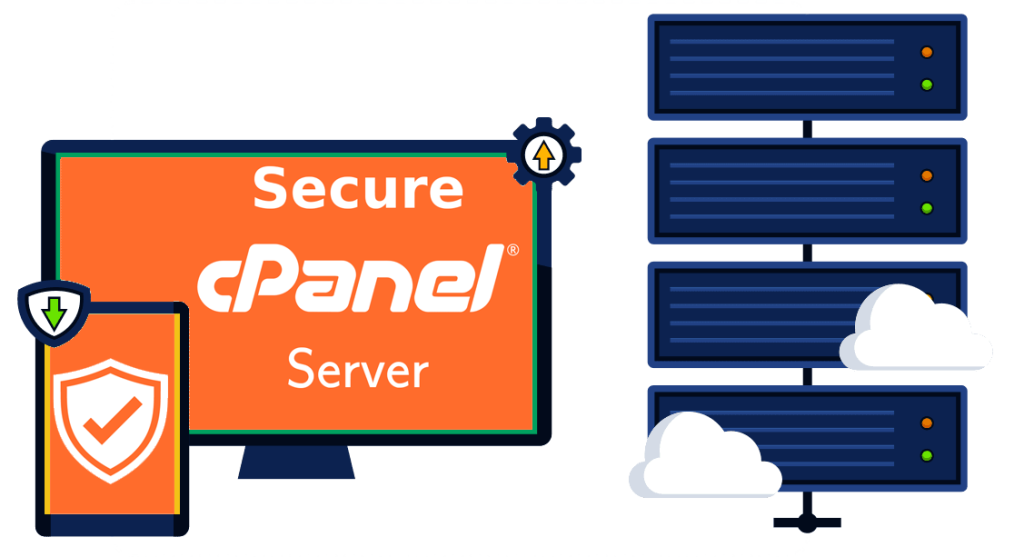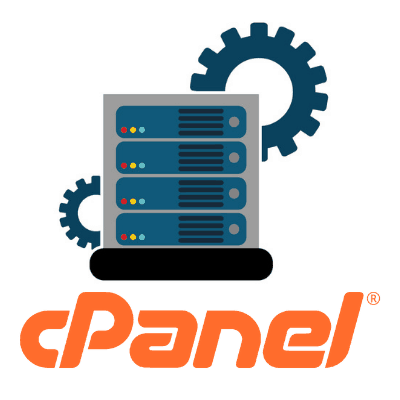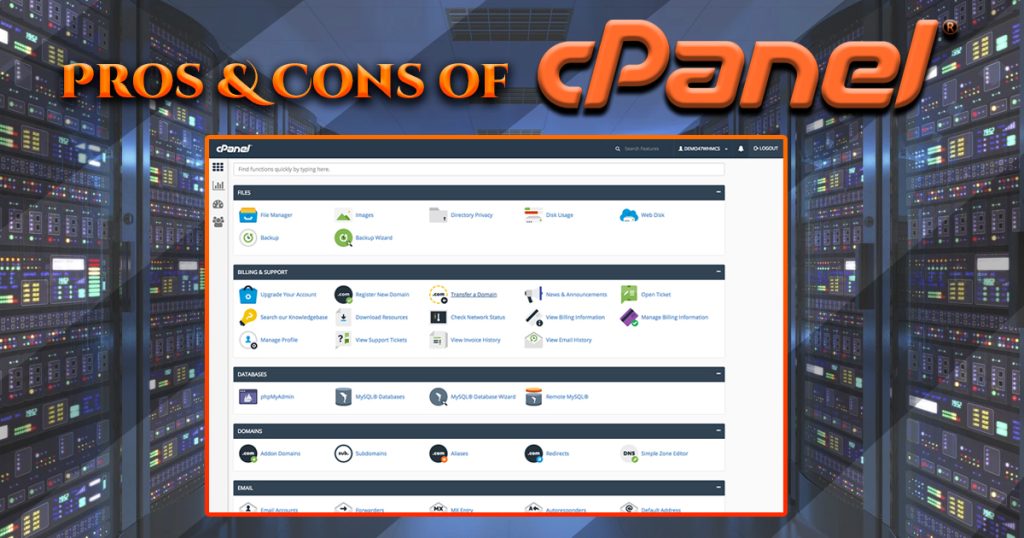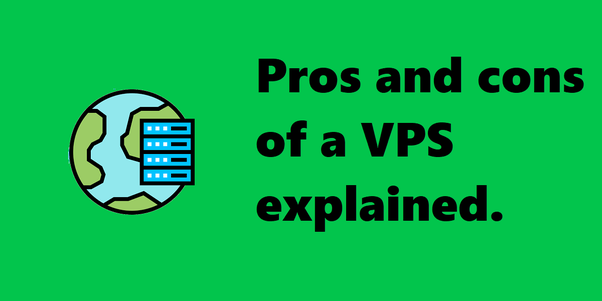Although it’s feasible to establish a VPS hosting platform without utilizing cPanel, certain users find value in having a web-based control panel that they can access and customize according to their preferences. When it comes to managing a Virtual Private Server (VPS), administrators often face the decision of choosing the right control panel to streamline server management tasks. cPanel, a popular web hosting control panel, is one option that offers a range of features for server administration. In this blog post, we will delve into the pros and cons of using cPanel on a VPS.

Table of Contents
About cPanel
It is a widely used web hosting control panel designed to simplify and automate the process of managing web servers and hosting accounts. It provides an intuitive graphical user interface (GUI) that allows users to handle various server and website-related tasks without the need for extensive technical expertise. cPanel is a powerful and widely adopted tool for managing web hosting environments, providing a balance between user-friendliness and robust functionality for both beginners and experienced administrators.

Pros of cPanel on VPS
- User-Friendly Interface:
- It provides an intuitive graphical user interface (GUI), making it user-friendly even for individuals with limited technical expertise.
- The interface simplifies server management tasks, allowing users to perform actions like setting up domains, managing databases, and configuring email accounts effortlessly.
- Wide Range of Features:
- It offers a comprehensive suite of tools and features, including file management, email configuration, DNS settings, and more.
- With the Softaculous integration, users can easily install and manage a variety of web applications, enhancing the functionality of their websites.
- Time Efficiency:
- The streamlined interface and automation features save time for administrators, allowing them to perform tasks efficiently.
- Automated backups, one-click installations, and updates reduce the manual workload, freeing up time for other critical server management activities.
- Security Measures:
- It includes security features such as SSL certificate management, IP blocking, and two-factor authentication, helping to enhance the overall security of the VPS.
- Regular updates ensure that security vulnerabilities are addressed promptly.
- Support and Documentation:
- It comes with extensive documentation and a large user community, making it easy for users to find solutions to common issues.
- The availability of official support from cPanel provides an additional layer of assistance for users facing complex problems.

Cons of cPanel on VPS
- Cost:
- It is a commercial product, and VPS providers often charge an additional fee for licensing.
- For budget-conscious users, the cost of cPanel may be a deciding factor, especially when there are alternative control panels available for free.
- Resource Consumption:
- It can be resource-intensive, consuming a significant amount of RAM and CPU, particularly on smaller VPS plans.
- This may impact the overall performance of the server, especially if the VPS has limited resources.
- Learning Curve for Advanced Users:
- While cPanel is user-friendly for beginners, some advanced users may find the interface limiting and prefer more direct control over server configurations through command-line interfaces.
- Experienced sysadmins may find the abstraction of certain settings cumbersome.
- Dependency on Licensing:
- The licensing model of cPanel ties users to the product, and changes in pricing or licensing terms can affect the overall cost of VPS ownership.
- This dependency may limit flexibility for users who want to explore alternative control panels.
- Updates and Version Compatibility:
- Automatic updates, while beneficial for security, can sometimes lead to compatibility issues with certain applications or custom configurations.
- Users need to be vigilant about checking for compatibility before initiating updates to avoid disruptions.
Conclusion
Choosing whether to use cPanel on a VPS depends on various factors, including user preferences, technical requirements, and budget constraints. While cPanel offers a user-friendly experience and a robust set of features, users should carefully weigh the advantages and disadvantages to determine if it aligns with their specific hosting needs. Ultimately, the decision should be based on a careful consideration of the trade-offs between convenience and resource consumption.

